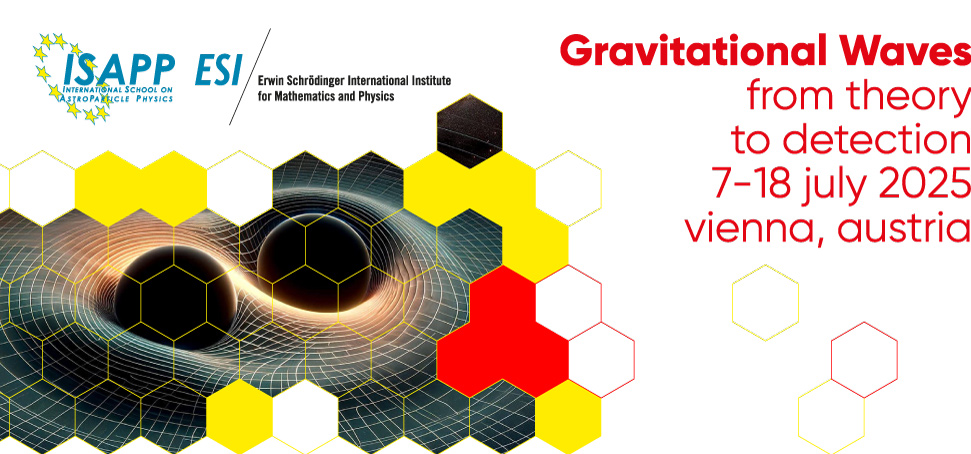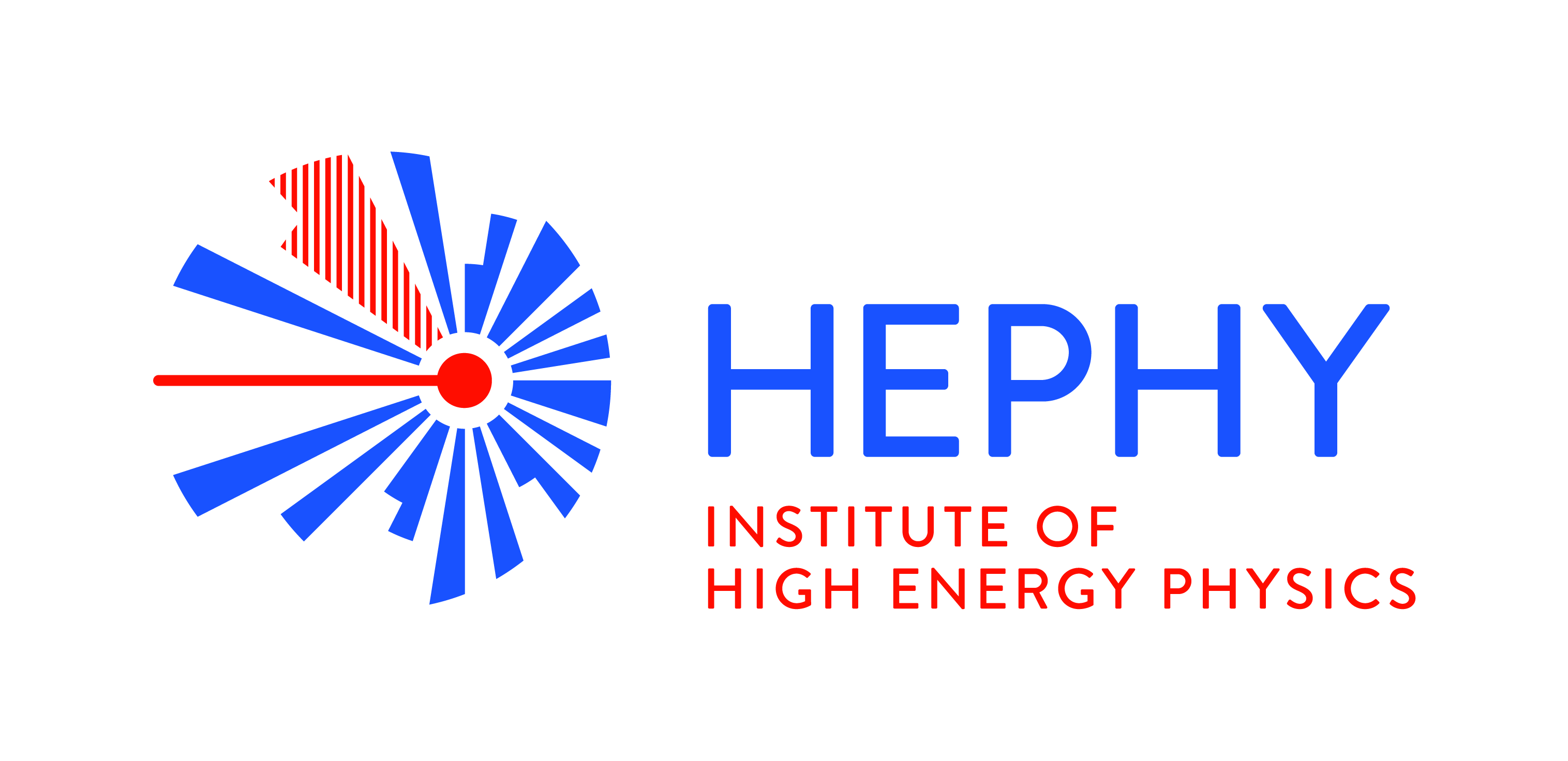An ISAPP school on the theory and detection of gravitational waves
REGISTRATION CLOSED.
This astroparticle physics graduate school will cover important and timely topics that are connected to gravitational waves, taught by internationally renowned experts. A primary focus of the school will be on understanding how gravitational waves emerge from the theory of general relativity and how these can be detected using modern technologies. Gravitational wave detectors, astrophysical sources, multimessenger astronomy and quantum sensing, are examples of the core topics that will be presented to the students. Lectures will be complemented with hands-on sessions. The duration of the school is 10 working days, from Monday the 7th of July (first lectures after lunch) to Friday the 18th of July (last lectures before lunch).
ISAPP is a consortium of 40 European Institutions that organize Doctorate Schools on Astroparticle Physics for more than 20 years, https://www.isapp-schools.org. The Vienna Institute of High Energy Physics of the Austrian Academy of Sciences is a member of the consortium. The school was originally planned to be hosted and financially supported by the Erwin Schrödinger International Institute for Mathematics and Physics (ESI) which is a beautiful workshop space on Boltzmanngasse in the Vienna 9th district.
Key topics of the school include:
- Introduction to Gravitational Waves / Basic Theory: What are gravitational waves, and how do they arise from general relativity?
- Sources of Gravitational Waves: What are the primary astrophysical sources that generate gravitational waves, and how do they vary in strength and frequency?
- Gravitational Wave Detectors: Current gravitational wave detectors like LIGO and Virgo employ laser interferometry—what are the future improvements that might enhance their sensitivity?
- Data Analysis and Signal Processing: How are gravitational wave signals extracted from noisy data, and what new computational techniques are being developed for more accurate analysis?
- Gravitational Wave Cosmology: How can gravitational wave observations provide new insights into the expansion of the universe, dark matter, and dark energy?
- Stochastic Gravitational-Wave Background: What sources contribute to the stochastic gravitational wave background, and how can it be distinguished from individual events?
- Tests of General Relativity: How do gravitational wave detections allow us to test the limits of General Relativity, especially in extreme environments like black hole mergers?
- Multimessenger Astronomy: In what ways do gravitational wave observations combined with electromagnetic and neutrino signals enhance our understanding of cosmic phenomena?
- Quantum Sensing in Gravitational Wave Detection: How are quantum technologies, such as squeezed light, improving the sensitivity of gravitational wave detectors?
- Public Outreach and Education: What strategies are being used to increase public awareness and understanding of gravitational wave science, and why is this important for future research development?
Confirmed Lecturers:
- Clifford M. Will (University of Florida)
- Michela Mapelli (University of Heidelberg)
- Tania Regimbau (Annecy, LAPP)
- Costantino Pacilio (University of Milano Bicocca)
- Jessica Steinlechner (University of Maastricht)
- Elena Cuoco (Bologna University)
- Lijing Shao (KAVLI - Peking University)
- Angelo Ricciardone (University of Pisa)
- Zoltan Haiman (ISTA)
- Gideon Koekoek (University of Maastricht)
- Jan Harms (Gran Sasso Science Institute)

Questions to be addressed to: isapp-2025-vienna@lists.oeaw.ac.at
Local Organizing Committee:
|
Institute of High Energy Physics: |
University of Vienna: |
| Gianluca Inguglia (chair) Josef Pradler Jochen Schieck |
Josef Pradler (co-chair) |
Kindly supported by:
 |
||
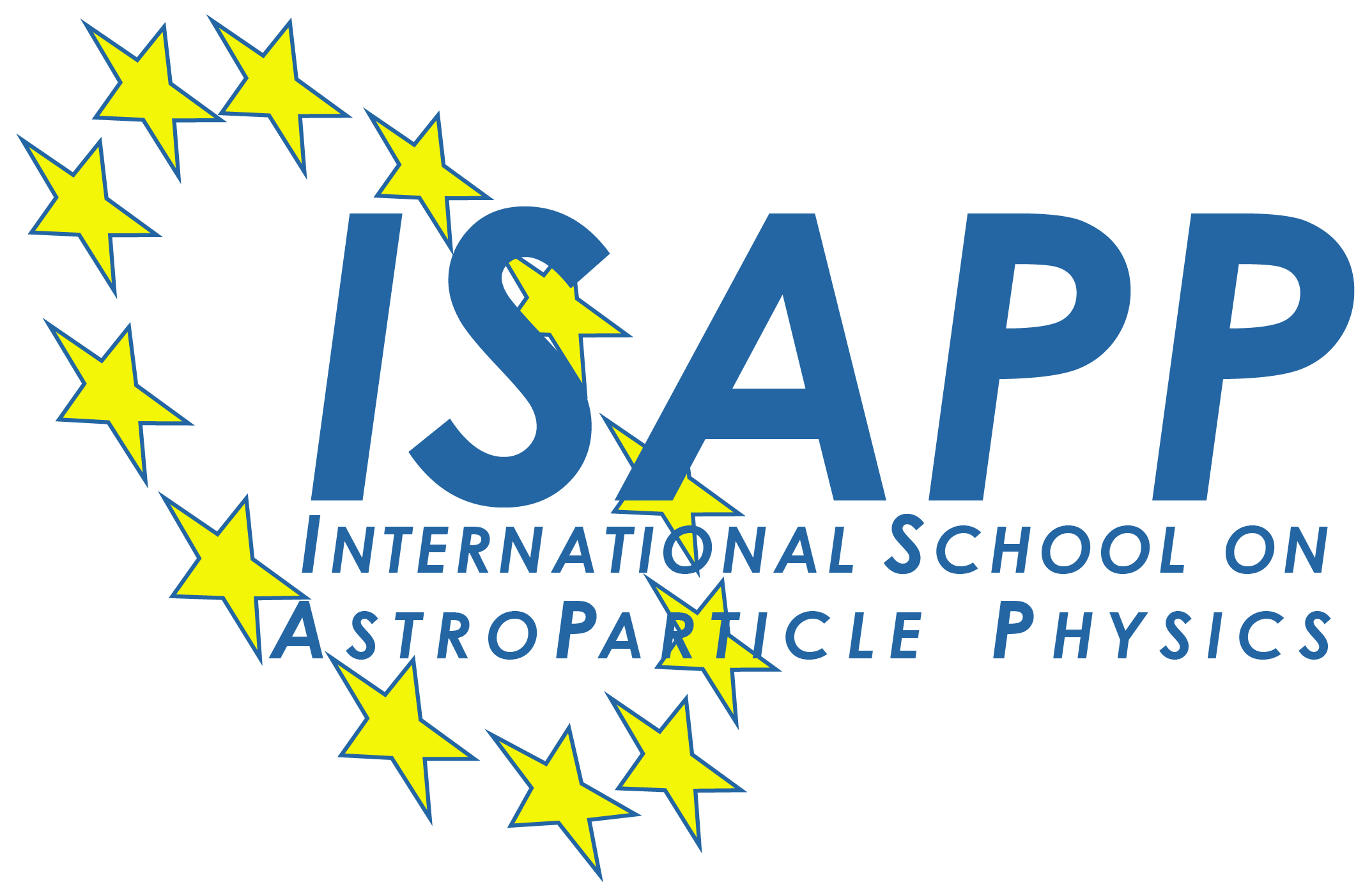 |
|
|
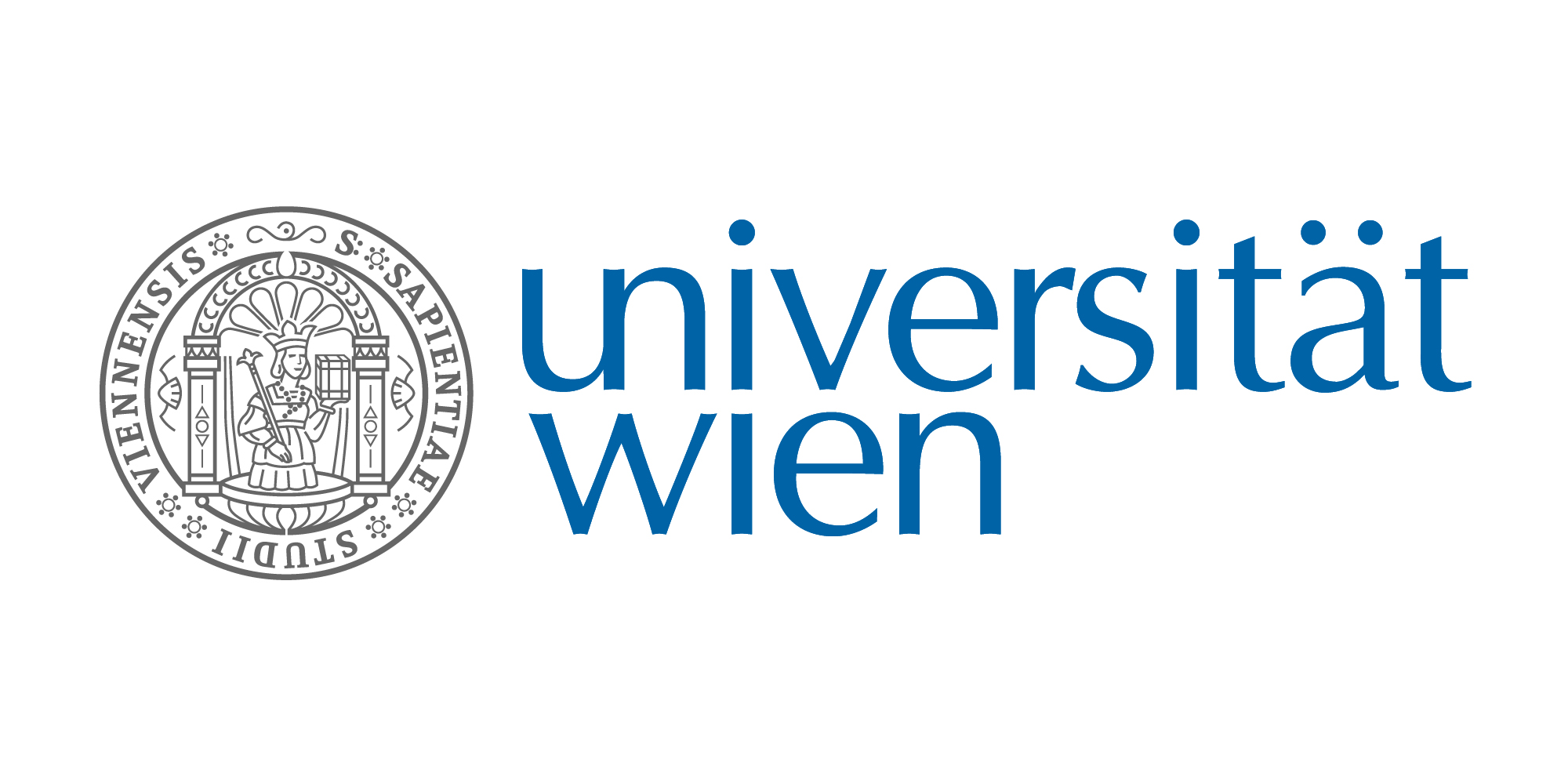 |
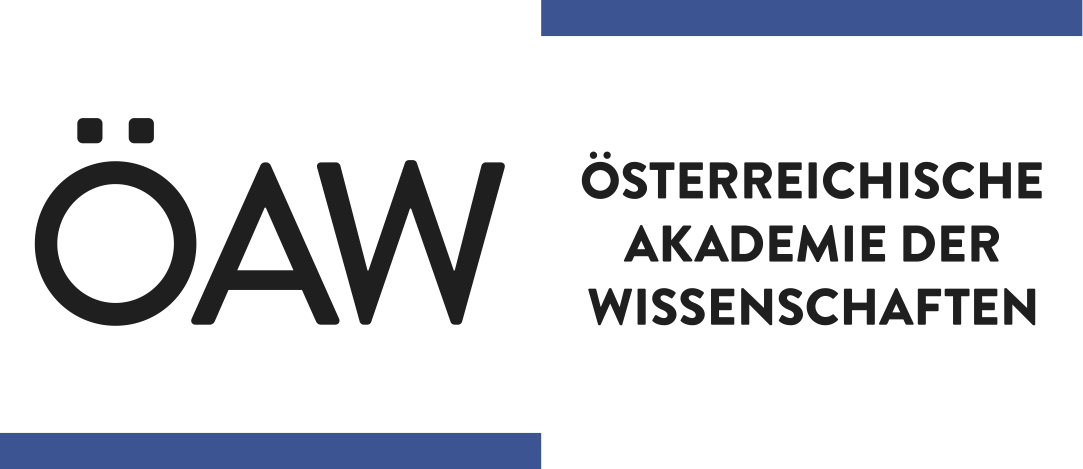 |
